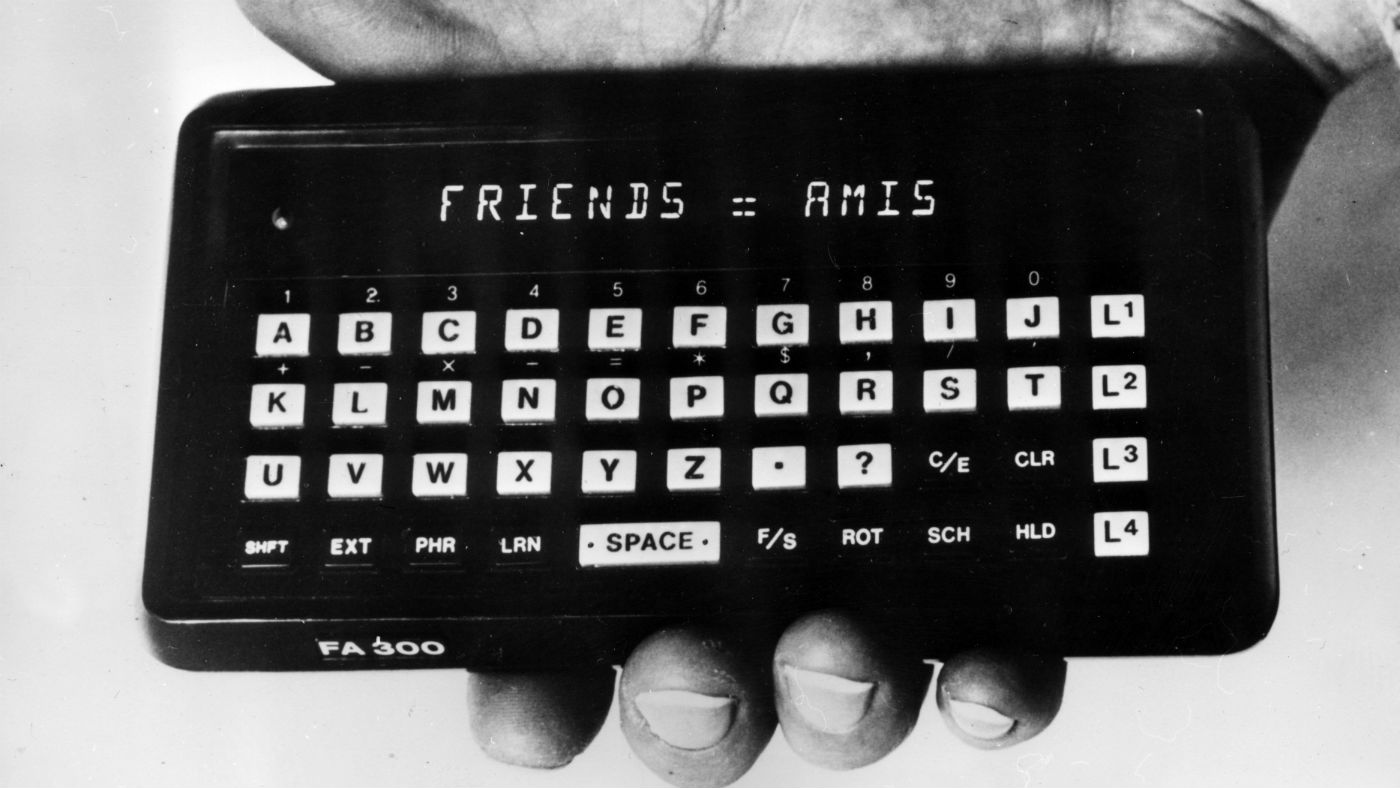How translation technology could change the world
Machine-learning could transform world of business, work and diplomacy but also drive us further apart

A free daily email with the biggest news stories of the day – and the best features from TheWeek.com
You are now subscribed
Your newsletter sign-up was successful
Once the preserve of science fiction, the ability to seamlessly understand any language in the world in real-time is on the brink of becoming a reality, with huge consequences both positive and negative.
The £40bn global market for translation technology “is booming and it promises to upend everything from education and travel to the world of business, work and diplomacy,” says The Daily Telegraph.
“Students can dump their dictionaries, travellers can communicate with locals naturally and politicians no longer have to rely on a human interpreter. In theory, at least, they should allow for more effortless communication - and the spread of new ideas across different cultures and around the world than ever before,” says the paper.
The Week
Escape your echo chamber. Get the facts behind the news, plus analysis from multiple perspectives.

Sign up for The Week's Free Newsletters
From our morning news briefing to a weekly Good News Newsletter, get the best of The Week delivered directly to your inbox.
From our morning news briefing to a weekly Good News Newsletter, get the best of The Week delivered directly to your inbox.
“One of the most vexing challenges for artificial intelligence is language interpretation and translation,” writes Andy Uhler in MarketPlace, “not only because there are so many languages but because machines still have a devil of a time figuring out all the nuance and context of human speech and the written word”.
But driven by the shift from market leaders such as Google to using “neutral networks”, which mimic the brains of humans and animals in order to allow machines to teach themselves how to do tasks, “the growing popularity of artificial intelligence (AI) has helped bring down the cost of translation dramatically”, says Rilind Elezaj on tech website Raconteur.
The growing important of translation tools in the digital world was highlighted by a recent report from the University of New South Wales, which showed while Chinese speakers (23%) make up nearly the same percentage of internet users as English-speakers (28%), English content leads Chinese content online by a massive 56% to just 3%.
This means that “improving the quality of machine translations is big business for technology companies”, says the Telegraph.
A free daily email with the biggest news stories of the day – and the best features from TheWeek.com
Today there are AI-enabled translation apps such as Google Translate, Amazon Translate, and Microsoft Translator which have evolved over time to deliver highly accurate results, while companies like eBay, Skype, Twitter, and WeChat are adding translation features to boost their usability around the world.
Many mobile apps now offer a “visual translation” feature which allows travellers to point their smartphone at a road sign or poster, and get an instant translation.
Furthermore, according to The Times, “a breakthrough from Google engineers could enable the real-time translation of sign language on a phone app”.
Yet technological advances in translation technology also come with several caveats.
“As is the case in many industries, there are fears that improvements in AI translation could come at the cost of human jobs,” says Verdict.
The translation industry currently employs over 500,000 professionals at an estimated 21,000 translation agencies, many of whom will so have to rethink their roles in years to come.
There are also concerns about how all this new data could be used. This month, tech site Motherboard revealed that Microsoft workers occasionally listen to real Skype conversations to check the quality of translations.
The BBC says “the practice of using human contractors to assess recordings of customers using tech products has faced increasing scrutiny lately”.
In response, Apple and Google have decided to suspend their use of human contractors for reviewing voice recordings made by the firms’ virtual assistants and smart speakers, including Apple's Siri.
There is also the human factor to consider. With translation apps becoming ever more ubiquitous, fewer people are choosing to learn a foreign language.
This matters, says Big Issue editor Paul Mcnamee because “things are just better in their own language”.
“Your level of comprehension grows. You understand a nation and people more if you can read their writing in their own language. When you communicate with them in their language, people appreciate it. The door swings open, bringing understanding rather than suspicion.”
As well as the cultural benefits, there is also research that shows learning a foreign language helps delay the onset of dementia.
“It's a pity that fewer people are learning languages... second language learning for human beings [will be] self-satisfaction,” says Dr Saihong Li, professor of translation studies at the University of Stirling,
That said, even if technology could eventually become so advanced that people will not even know translation is taking place, “I don't think the machines will completely replace humans,” she adds.